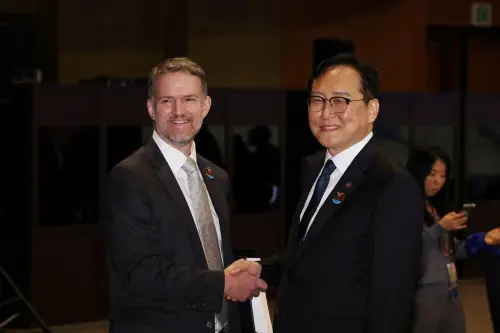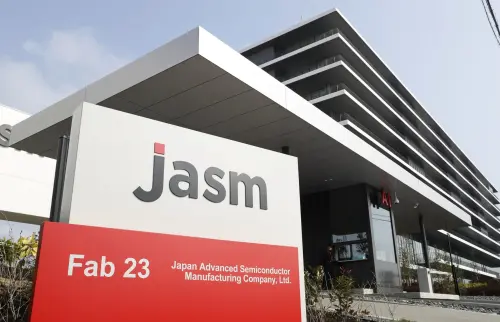

8:30 am EDT - 9:45 am EDT
Past Event
On March 23, 2022, the Center for East Asia Policy Studies at the Brookings Institution convened a group of experts from the United States and South Korea for the third and last workshop in a series to assess South Korea’s role in the new geoeconomics and its implications for U.S.-Korea relations and South Korea’s economic diplomacy in Asia. The theme of the workshop was development finance and infrastructure and the supply of regional public goods.
The workshop opened with framing remarks provided by two experts who offered analysis from the points of view of South Korea and the United States. Dr. Taekyoon Kim, associate dean for public affairs and communication and professor of international development at Seoul National University, explained that effective aid necessitates adhering to the five principles of the Paris Declaration – ownership, alignment, harmonization, managing for results, and mutual accountability. Harmonization amongst donors was singled out as one area in need of improvement. To strengthen coordination, donors must share information, establish common arrangements, and simplify procedures, but these practices seem to be lacking at present.
In assessing China’s infrastructure and development finance engagement in the Indo-Pacific, Kim noted that the Belt and Road Initiative (BRI) offered many benefits for recipient countries, including no integration of projects into local politics, no conditionality of terms, and the speed and scale of projects. However, a key drawback for recipient countries when engaging the BRI is the danger of falling into a debt trap situation (with Sri Lanka serving as one example). Kim contended that like-minded democracies should create a transparent model of finance for the region, giving countries the ability to choose the donor that best fits their needs and values.
Kim indicated several key deficiencies in the current state of play. Though there are many ongoing development projects in the region, the system is fragmented as projects are operated by many different donors. One challenge is to find the right umbrella under which these disparate pieces can be integrated. A separate challenge in bilateral U.S.-ROK cooperation is that South Korea currently lacks a development finance institution (DFI) through which direct coordination of financing plans can be channeled. Another issue is that of accountability, namely, creating coordination schemes that provide quality control and global standards to prevent problems of debt and corruption. Utilizing the sectoral comparative advantages of various donor countries should be considered. Kim suggested that South Korea’s expertise in ICT could be integrated into a single package program that also leverages contributions from the U.S. and other Asian donors. Whether or not this might be achieved through ROK engagement with the Quad remains to be seen.
Dr. George Ingram, senior fellow with the Center for Sustainable Development at Brookings, began his remarks by pointing out two important commonalities between recent G7 Global Partnership for Infrastructure and Investment (GPII, successor to the Build Back Better World (B3W) initiative), and the Biden administration’s recently released Indo-Pacific strategy: digital is a priority in infrastructure development, and infrastructure projects must be accountable and transparent. He remarked that the COVID-19 pandemic has accelerated the fourth industrial revolution (rapid changes in and integration of technology in all aspects of life), as evidenced by the successful shift to remote work by employees, and the transition to digital operations by governments and companies. In contrast, countries, companies, and individuals with insufficient digital capabilities are being left behind – this includes much of Southeast Asia where the share of the population with access to the internet in some countries is only 40-50 percent.
A number of analog issues must be addressed to bring about positive digital transformation in the region. This includes promoting digital literacy to spur innovation and help keep user costs low, protecting data privacy and freedom of data flows, defending users from abuse by governments and social media, and advancing effective policies that address interoperability, competition, inclusion, and cybersecurity. South Korea and the United States are largely aligned in their vision for digital transformation and could launch a new initiative to address the infrastructure gap in Asia. Ingram suggested that the Power Africa initiative, which links twelve U.S. development agencies, with USAID in the lead, and has utilized over one hundred public-private partnership arrangements to garner both monetary and power resources, may provide a valuable model for a new U.S.-ROK cooperative effort. Moreover, a multilateral effort would allow the U.S. and others to better compete with what China has on offer. Finding the political will for such efforts though remains a challenge, particularly in the U.S. where donor coordination faces significant hurdles from Congress and bureaucracy.
In the group discussion that followed, a prevailing topic was whether U.S.-ROK cooperation in development finance would best be channeled through existing institutions or through a newly created initiative. The Blue Dot Network might be one such umbrella under which cooperation can take place as it puts high emphasis on quality and accountability, and South Korea may be able to capitalize on technology cooperation given its strength in ICT. On the flip side, these very standards could be an impediment to broad participation if the bar is set too high, and it is unclear whether Seoul holds much interest in the network. In the G7 GPII initiative, there appears to be a desire to offer an alternative to China in development and infrastructure financing, but one participant noted that at the time of this workshop there was no effective coordination mechanism through which to deliver via these fora. Alternative fora and existing institutions mentioned as potential routes for cooperation included working groups under the Quad, the U.S.-led Indo-Pacific Economic Framework (IPEF), and ASEAN.
One point of debate amongst participants was whether the greatest impediment to cooperation rested with a lack of resource commitments rather than donor coordination problems. One participant countered that resource commitment is a result of poor coordination including the misuse of funds. On the role of DFIs, another participant added that attracting and mobilizing private funding is critical, as many DFIs rely primarily on private rather than public funding, and there may be space for cooperation here. The establishment of a proper DFI in South Korea could expand opportunities for diplomatic engagement in Asia, which boasts the largest potential market for DFI commitments and private donor funding. Yet another participant argued that there is no single DFI that can come anywhere close to competing with China’s BRI, and collective efforts by a few DFIs generally result in a lengthy and costly lead time to starting any collaborative projects. Additionally, there are downsides to working through a DFI, as its reliance on private funding can mean overemphasis on maximization of profits. This point was countered by a participant who indicated that such profits may act as the seed money for the next project, and that DFIs are taking more risks on funding projects that others might believe.

Andrew Yeo
May 20, 2025
2025
Online only
Wednesday, 9:30 am - 11:30 am EST

Mireya Solís, Mathieu Duchâtel
June 3, 2024